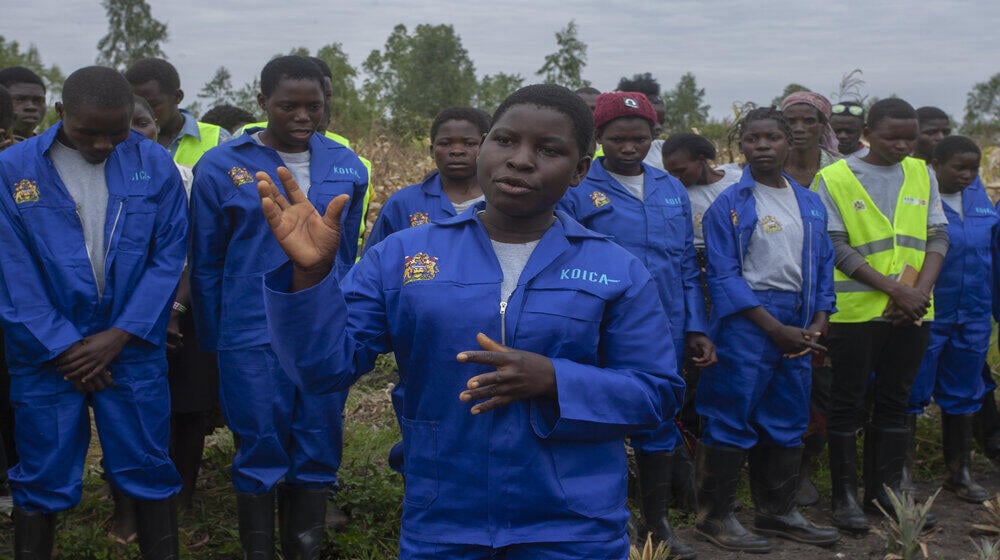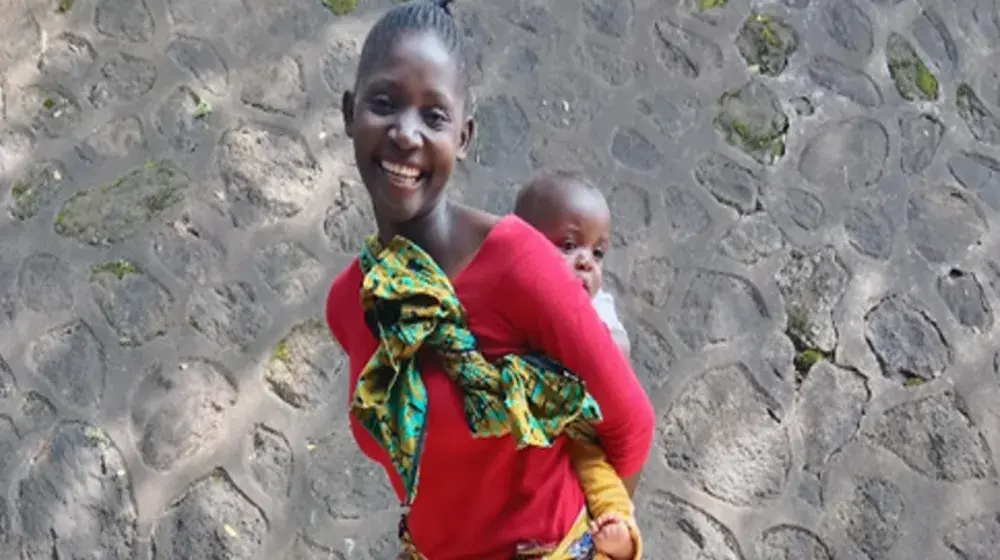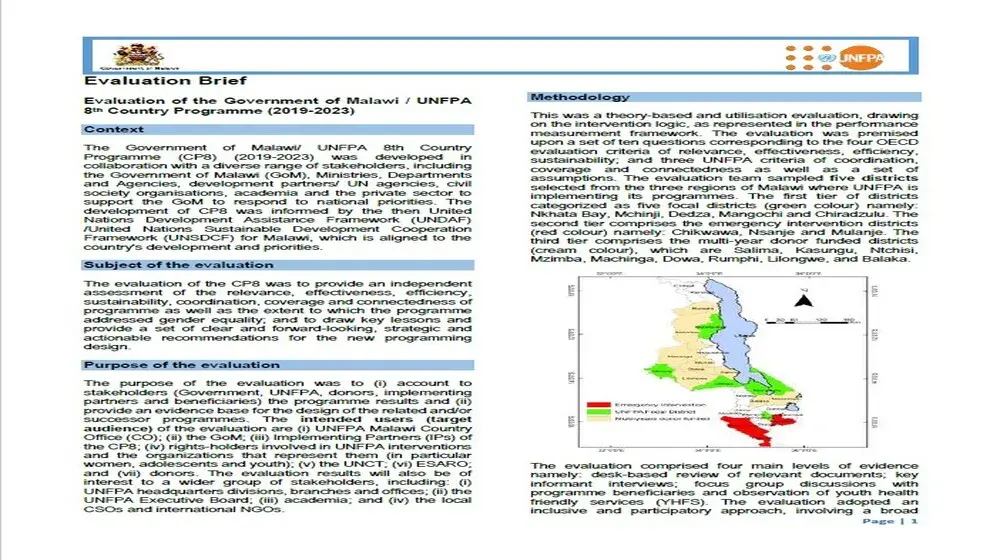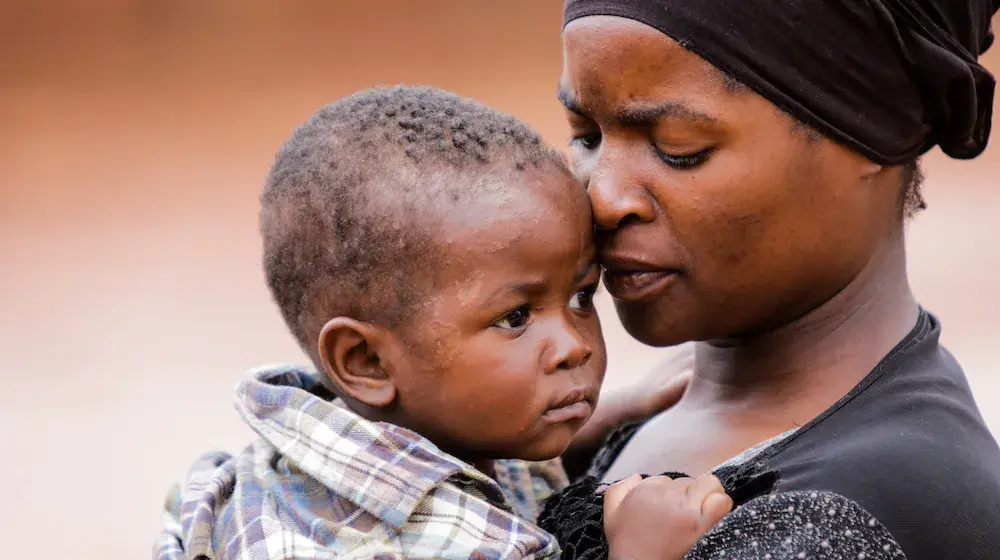Mchinji, Malawi- Cecilia Zimba dropped out of school when she was 17 years old. Her parents couldn’t afford to support her education. But the young girl still had high hopes that one day, her parents would find money to send her back to school.
But as months turned into years while loafing at home, that hope dwindled. Seeing no future, Cecilia got married at the age of 19. Two years later, she became a mother.
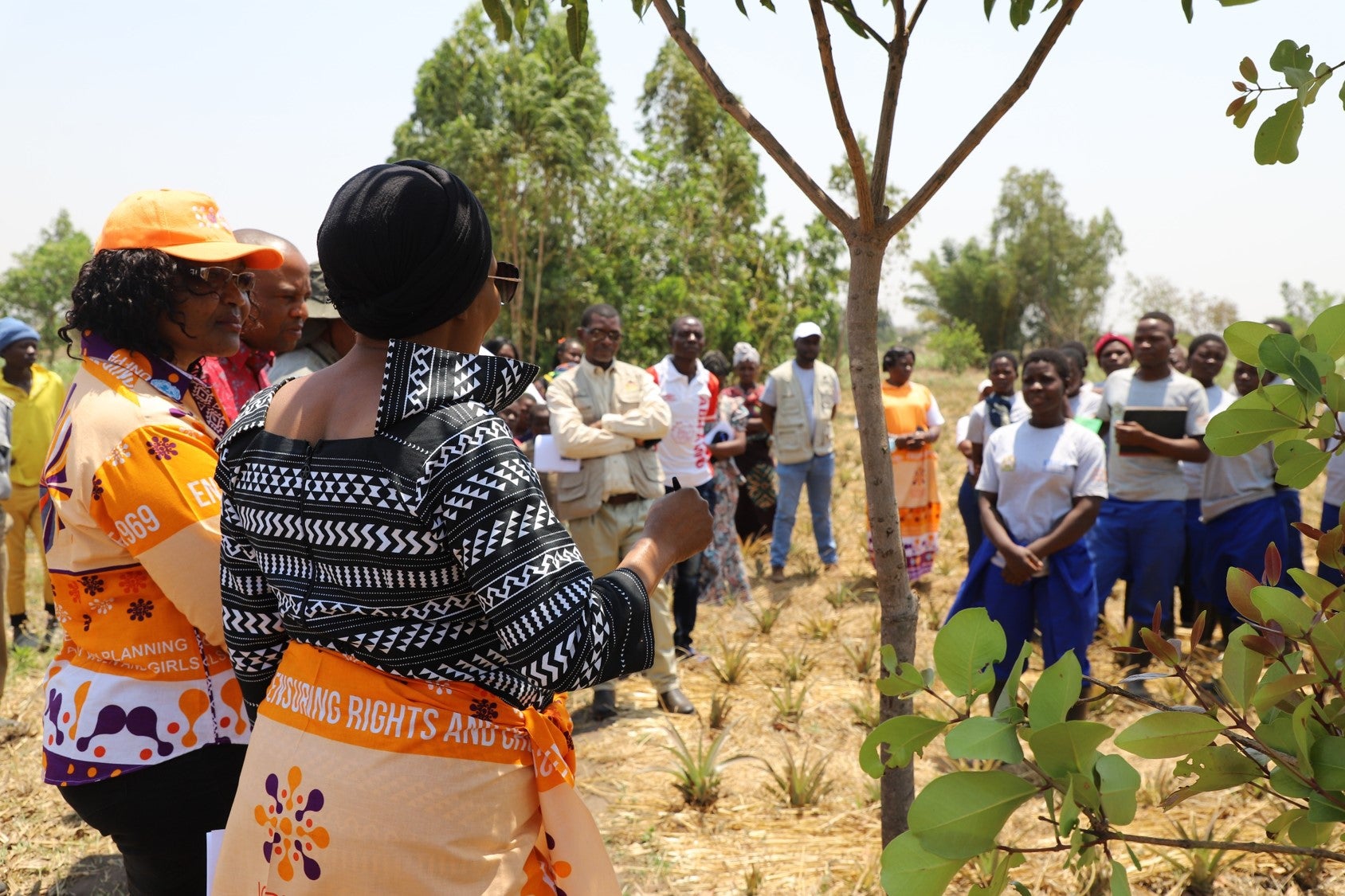
Now at 23, Cecilia rues the chances she missed because of dropping out of school.
“I wanted to become a nurse,” she says. “But that dream ended because I had no one to support my education.”
Cecilia story resonates with that of many girls in Mchinji district. The majority of girls in the district, 88 percent, are enrolled in primary school, however only 11 percent proceed to secondary school. The high dropout rate for girls has contributed to high child marriages in the district. Nearly half of married girls and young women between the ages of 15 to24 were in a union before the legal age of 18.
To address some of the problems faced by adolescent girls and teenage mothers in Mchinji, the Government of Malawi, UNFPA and FAO with funding from the Korean International Cooperation Agency (KOICA) are implementing a project called Action for Adolescent and Teen Mothers in the district.
The project aims to empower teen mothers and adolescent girls to make inform decisions about their sexual and reproductive health and life and contribute to the reduction of early pregnancy, child marriage and other poor sexual and reproductive health outcomes.

In addition, the Action for Adolescent and Teen Mothers project is also empowering adolescent girls and teen mothers and some boys with basic farming skills through Farmer Field and Life Schools (FFLS), a skills development and participatory extension methodology based on adult education principles. The FFLS has enabled youths to gain skills in good agricultural production practices and exposed them to essential life and entrepreneurial skills leading to decent independent livelihoods.
And Cecilia is one of the beneficiaries of the FFLS and chairperson of her group.
“I am happy to be part of this group as I have learnt so many things that are helping me in my daily life,” said Cecilia during a presentation she made a to a high-level delegation led by the Deputy Minister of Local Government, Hon. Halima Daud.
The Deputy Minister, senior government officials and UN officials were visiting one of the pine apple fields owned by the youth group to appreciate how the Adolescent and Teen Mothers project is changing lives of young people in Mchinji.
“Apart from farming, we also discuss issues such as gender based violence, family planning and offer each other advice on problems we face as young people,” Cecilia told the visitors.
Through the interactions, some youth from the group have gone back to school after having dropped out. However, for Cecilia, she is yet to decide as her focus now is raising her kid and helping their group grow.
Hon. Daud was impressed with the FFLS initiative and called on the youth to make the most out of the project, and importantly to refrain from engaging in early sexual activities. After visiting the FFLS, the minister also had an interaction with community groups. She appreciated how the project is working with different players in the community to fight gender based violence and child marriages.
Earlier in the day, Hon. Daud had presided over the handover ceremony of a vehicle and information technology (IT) equipment donated by UNFPA, with funding from KOICA, to Mchinji District Council. The donation was a response to the request by Mchinji District Council.
Hon. Daud said her Ministry was excited with the donation saying it adds value to development efforts already taking place in the district as well as at community level.
“As you are aware, young girls succumb to sexual reproductive challenges involving teen pregnancy, which result in dropping out of school at an
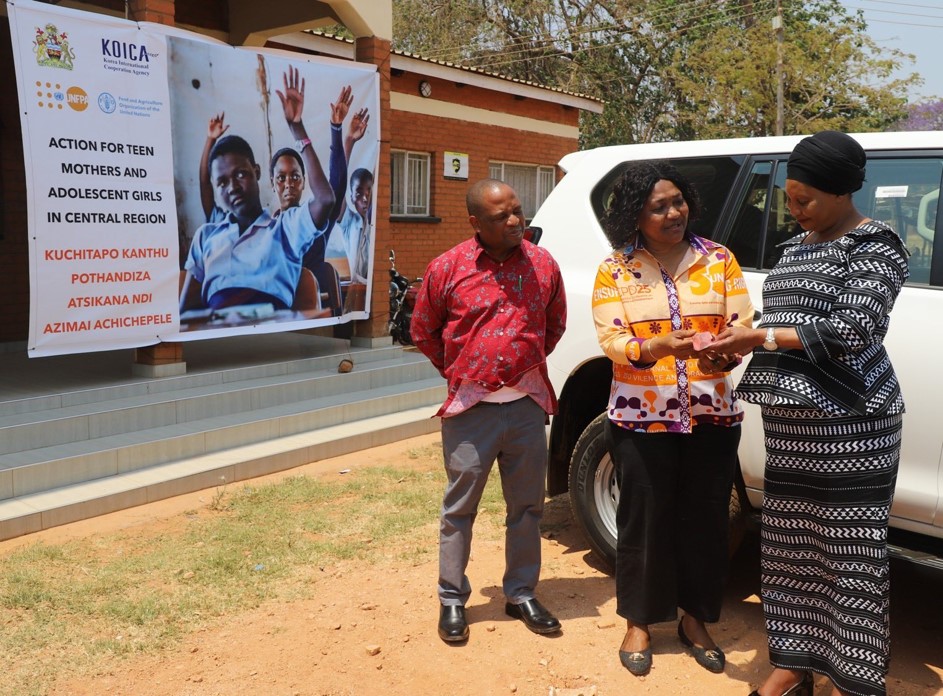
In her remarks, UNFPA Officer in Charge, Ms. Miranda Tabifor said the procurement of the vehicle and IT equipment will strengthen the technical and monitoring support of the District Council to all implementing partners.
“UNFPA and the Action for Adolescent and Teen Mothers project team will support the government leadership in project management and coordination to promote sustainability of project results and opportunities for mainstreaming and ramping up good practices from the project,” she said.
Ms. Tabifor added that UNFPA will continue to provide support to the government of Malawi, key partners and stakeholders to ensure the realization of sexual and reproductive health and rights of adolescent girls and young women in Malawi.
By Joseph Scott, Communications Analyst

